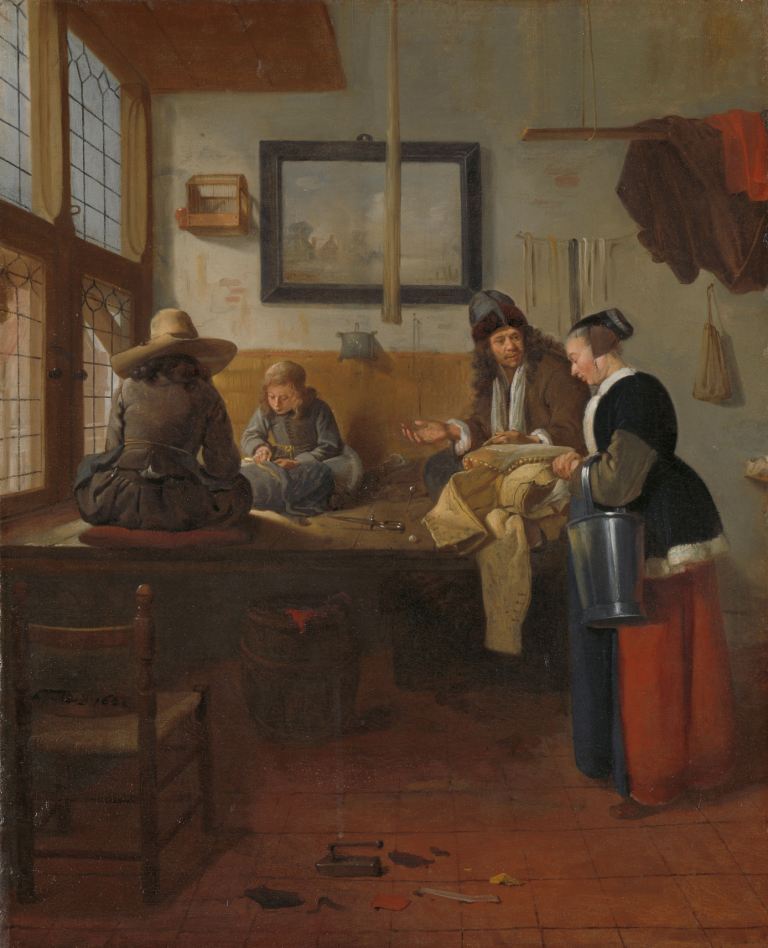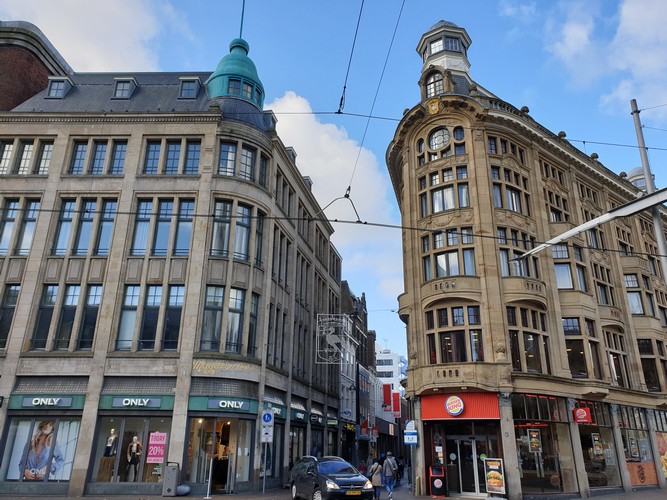The Hague is, of course, the city of royal palaces, but we have other types of palaces as well. Beginning around 1900, The Hague was enriched by “fashion palaces”.
The origins of shops
In the old days, if you needed shoes, you went to the shoemaker. If you needed a hat, you went to the milliner. You placed your order directly with these craftsmen and they made their products to order in their own workshops. But it was also handy to have some merchandise in stock. And that stock was kept in a corner of the workshop. An old Dutch word for corner is ‘winkel’ (as, for example ‘winkelhaak’, a carpenter’s square). So that is the origin of the Dutch word ‘winkel’ for shop.
By the second half of the 19th century, the Industrial Revolution had produced a clear division between the making and selling of products. The craftsman with his workshop lost out to the factories as more and more people came to live in cities. For example, the population of The Hague increased from 100,000 in 1875 to 200,000 in 1900. Local craftsmen could not meet the demands of such a large population, but entrepreneurs who opened shops, where it was possible to store large amounts of stock, could. And so people went to the shops to see if there was anything they liked, instead of ordering a specific item with a craftsman. For the first time people went ‘shopping’ (‘winkelen’ in Dutch). This was a new word that came into use in The Hague around 1900.
Fashion palaces in shopping streets in The Hague
Ever since the Middle Ages, Hoogstraat, Noordeinde, Spuistraat, Vlamingstraat and Venestraat have been centers of local commerce and trade. In the early decades of the 20th century, many old buildings along these streets were replaced by much larger shops that transformed these streets into really posh shopping areas. Let’s take a closer look at some of the fashion palaces.
Magazijn Nederland
At the corner of the Spuistraat and the Spui, you could visit the shop of Magazijn Nederland. This company was founded in Amsterdam in 1856 by L.A. Kattenburg. He had 10 sons who all worked in the business, establishing branches in various cities in the Netherlands. One of their advertisements shows that they sold ‘gemaakt kleding (made clothing)’. Magazijn Nederland was one of the first retailers to sell ready-to-wear clothes.
In 1915, the architects Simons & Van Braningen were commissioned to design a whole new building for the Magazijn Nederland. Above the entrance on the corner, you can still see the name of this shop in gold letters.
B.J. Voss & Zonen
At the end of September 1909, fashion house B.J. Voss & Sons placed an advertisement in the Haagsche Courant proudly announcing the opening of a fourth branch.
They already had shops in Amsterdam, Rotterdam and Leeuwarden, and now they also had a building in The Hague, with six floors of women’s and children’s clothing and fabrics. This design by architects Jacot and Oldewelt is on the corner of Spuistraat and Hofweg. The advertisement stated as a special feature: ‘Electric lift to all departments.’
This chain of shops was founded in 1828 by Bernhard Voss. Before that he had moved from Westphalia in Germany to Bolsward (Friesland), where he had started a wholesale textile business together with his father-in-law.
Compagnie Lyonnaise
If you really wanted to show you were into fashion, you had to choose beautiful fabrics after the latest Parisian styles, for example at the Compagnie Lyonnaise. In 1891, this fabric house opened a branch in The Hague. First they had premises at Plaats, but in 1903 they commissioned architect Louis de Wolf to design a new building.
On the corner of the Kneuterdijk and the Hoge Nieuwstraat a fashion palace was built in the Viennese Art Nouveau style, which the newspapers of the day called ‘a strict modern style’. The Dagblad van Zuidholland en ‘s Gravenhage further reported in its review: ‘The main entrance at the very corner of the aforementioned streets is centred between large reflective windows; this division does the display windows justice and also has the advantage of good lighting for the shop’.
All the businesses mentioned in this article are long gone, but the buildings are still there for us to enjoy.
Coming up: a new guided tour with the theme ‘Shop architecture’. Send an email to mail@guidethehague.com if you are interested.









5 thoughts on “Fashion palaces”
Een informatieve geschiedenis, heel erg bedankt!
Heel interessant. Hartelijke dank en beste wensen.
Love this article. When I get back (next year?) I’d love to do this tour…I recognise all these names.
Door deze tour Fashion Palaces werd ik ontzettend blij, de gids deed haar tour zeer kundig en toegespitst op de deelnemers. Ik ben benieuwd naar de andere tours!
Hartelijk dank voor deze enthousiaste woorden, daar word ik ook weer enthousiast van!